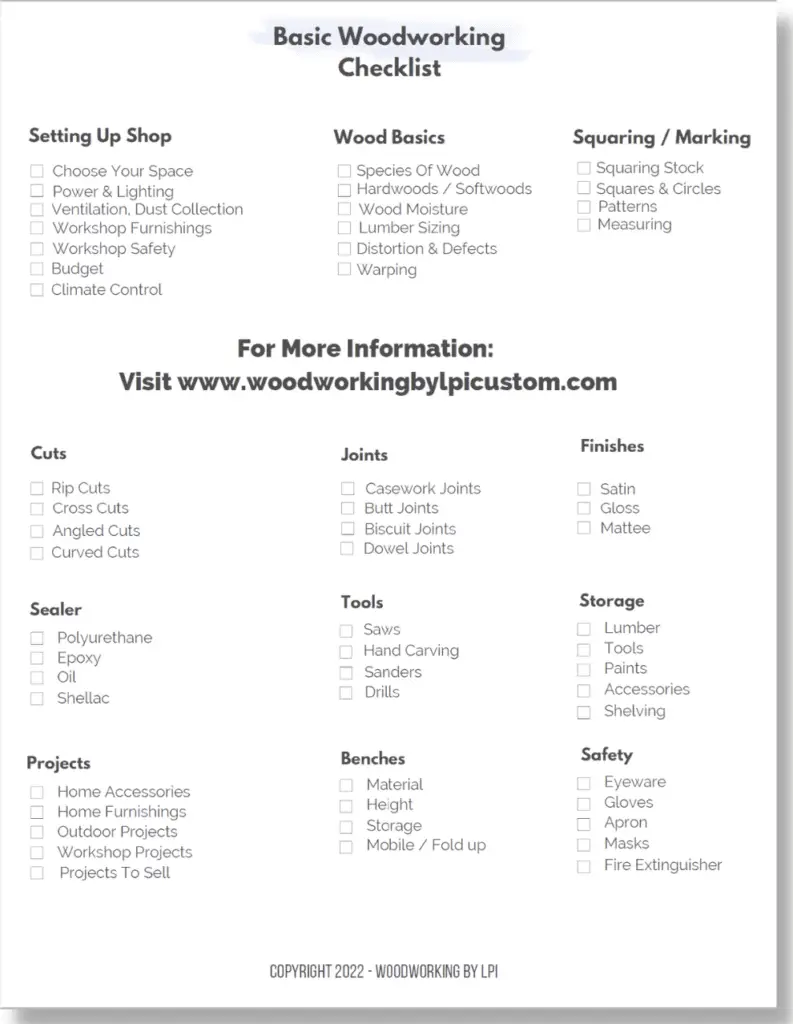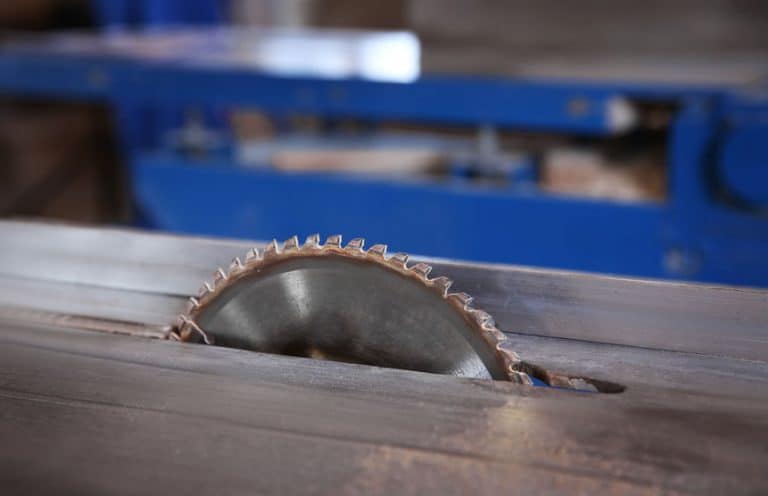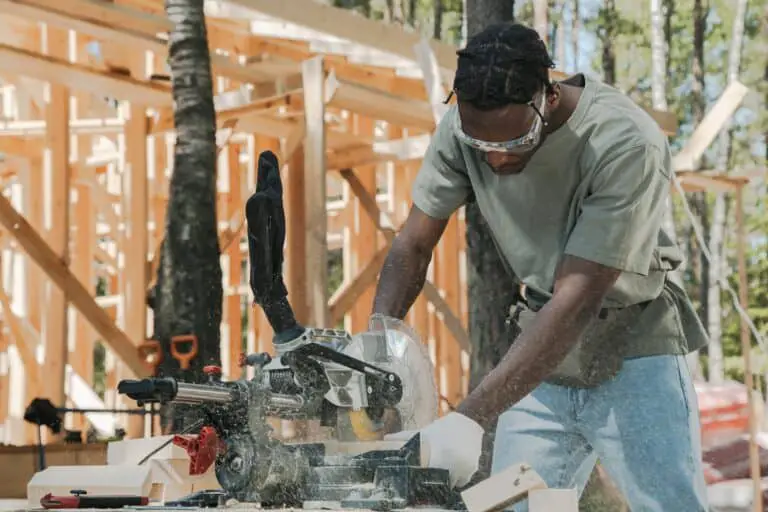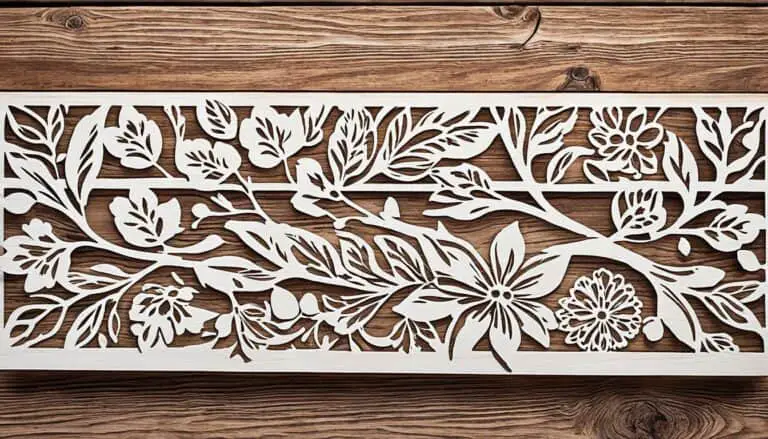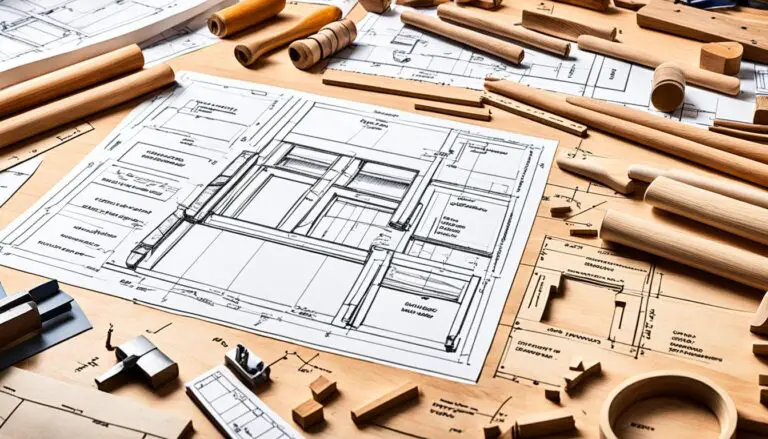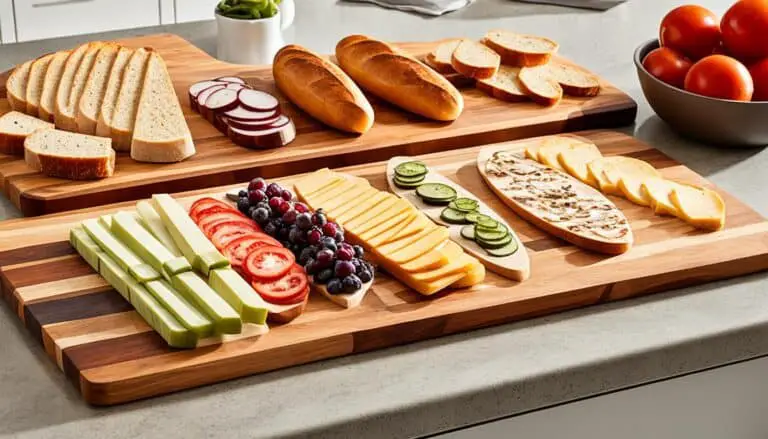How many clamps do I need for woodworking and more specifically what type of woodworking clamps do I need for my wood shop. There are so many on the market and so many choices out there it can be very overwhelming and frankly confusing.
The type of woodworking clamp you use in your wood shop is determined by the type of woodworking projects you make. Until you decide, the basic grip clamps or pipe clamps are the best to start with. Start small and grow according to your wood projects. This will save money and make it easier to decide.
Basic grips and clamps are key to you starting in your wood shop, they are inexpensive and readily available. They will assist you in joining boards, holding wood for cutting and sanding, etc. In my research, for the below, I will provide the basics from the beginner perspective on the different types of clamps to help you decide options moving forward.
A Little Background On Woodworking Clamps
Clamps have been around for a long time and have been used for many purposes and trades over the years. According to Wikipedia – “A clamp is a fastening device used to hold or secure objects tightly together to prevent movement or separation through the application of inward pressure.”
Knowing the history and basics of clamps gives us an idea of what clamps we are looking for and what we need. If you are interested in seeing some great examples of old-style clamps I found a great blog post providing great examples here.
Clamps have been dated back as far as the Egyptians, so it is safe to say they have a great purpose and legacy. Moving forward to more recent years clamps have evolved to new types of materials being used to ensure flexibility, durability, and ease of use but, the basic clamp still exists today.
How To Use Clamps For Woodworking

If you have never used clamps they aren’t really difficult to use. Most of them have the same concept of closing the wood material between the clamps unless you are using a specialty clamp for a specific purpose.
Steps For Using A Basic Wood Clamp
- Ensure you are on a flat surface if possible. This may not always be the case but is the best practice.
- Ensure your clamps are clean and serviceable. Clean up any glue and dirt which will prevent it best operation. This will ensure it works like you want it to.
- Place your wood material between the clamps and tighten. Don’t overtighten your wood material as it make cause dents or marks on your wood project.
Please note as you use wood clamps you don’t want to overtighten or under tighten the wood you are gluing. This may cause the wood to end upwards or downwards when tightening. You will want the wood material flat as possible. If you are not able to get them totally flat you can use spacers under the wood while in the clamps to help ensure they are flat.
Clamps are available in a variety of shapes and sizes, and the main purpose is to hold and bind wood pieces in place until the glue dries. They can also be used to hold wood material when sawing.
To better understand the different types and available clamps I have included a great video from Rockler to help explain them.
Before we get into some of the most popular clamps let’s look at the basics you will need to get started because not all clamps are created equal and different clamps are better for different purposes.
Best Clamps For Beginning Woodworking

As mentioned above the old expression “you can never have enough clamps” is a cliché that is said many times. However, I wonder if that expression is really true. Of course, you will buy more clamps overtime to help you with the wood projects you will create. But do you really need to go out and buy a lot of clamps when you first start out?
My experience in woodworking says no. A few basic clamps will work very well for you. The best suggestion I can give you is when you walk to your wood shop I’m sure you have in mind a wood project which you will work on. Consider the wood project and ask yourself what you will need. You plan the wood material and have a drawing or vision of what you will be creating so use that to judge the clamps you may already have or need.
Beginner Clamps
Grip clamps are readily available and fairly inexpensive. This type of clamp I would recommend to start with. You can find these at your Home Depot, Lowes, and Amazon. Now that you have an idea what types of clamps are the best for a beginner, know that Grip clamps are very affordable, come in many sizes, and work very well for a beginner.

Please know that not all grip clamps are created equal so beware. Some of them are very cheaply made and will not work very well. I would recommend a known brand name such as Dewalt and Irwin.
Let’s look at the different types of clamps that are common on the market so you are prepared and get what you need for your wood project.
Types Of Woodworking Clamps

With so many different types of clamps on the market, it can be confusing and overwhelming. This is due to the fact that clamps are purpose-driven. So not all clamps are made the same. This makes it even more difficult to understand what you need.
Below I wanted to go thru and provide brief descriptions of each of the most recommended wood clamps to give you a good perspective for consideration on what you may want to buy for your wood projects.
For your information here is an excellent overview of clamps from Popular Woodworking.
Parallel Clamps
Parallel clamps comes in different lengths and have the advantage of having a square beam.

One end is static and the other moves along the square beam. They are very flexible work very well due to the square beam and 90 degree ends.
Parallel clamps are different but why. They are different from the beam perspective, where the beam provides a great surface on which to put your material while you clamp it. Since the beam is square versus round like the pipe clamp the chances of damaging your wood material are minimal. Also, the wood material will not slide one way or the other.
Additionally, the moveable 90-degree jaws close in on the wood material very easy and the hand screw handle allows you to tighten and provide that extra holding power.
If you would like to purchase these you can get them on Amazon here.
Pipe Clamps
Pipe clamps have a long legacy and are very popular with woodworkers. Their flexibility is key to their success.

You can purchase the pipe clamp preassembled with a pipe or without the pipe. If purchased without the pipe you receive just two pieces. The Pony clamp and the multi-disc clutch pieces. Then you add the pipe, typically black pipe with threads on each side. The clamps come with the ability to use different size pipes both in diameter and length. The typical size is 3/4 in diameter, however, 1/2 diameter is also available.
The diameter size is a personal choice although both work very well. A great advantage to the pipe clamp is the ability to purchase different lengths of pipe. This gives you great flexibility to the wood projects you create by using multiple lengths and few sets of pipe clamps.
If you would like to purchase these you can get them on Amazon here.
F Clamps
These are popular with woodworkers as well and can be used for multiple purposes.

The F Clamp originates from the shape of the clamp which resembles the letter F. If you are familiar with the C Clamp it is very similar however it has a wider throat (Depth of Clamp) to accommodate wood pieces and not have the issues with the C form. They vary in throat size and the pressures which it can put against the wood you are wanting to glue together.
The upside to F Clamps is the flexibility they provide along with the confidence that they will not mark or dibble your wood project. There are various brands out there and I would recommend the Bessey brand. They are durable, can put a great deal of pressure on the wood project, and last quite a while, which is what you want in a woodworking clamp tool.
Below I have a very good review and look at various F Clamps to help you understand what you need to know and that they are not all created equal. Ensure you get your money’s worth.
If you would like to purchase these you can get them on Amazon here.
Strap Clamp
Strap Clamps are fairly new to the woodworking market however they are not a new concept. If you are putting together boxes, which we woodworkers do a lot of, this is the clamp for you.

The Strap Clamps are offered in many configurations. The one I am showing here is a one-handed strap clamp. It offers the capability to adjust your wood box while tightening slowly. You can use the strap clamp can be used with 4 corners or even 3 corners.
The flexibility of this clamp is its strength. It replaces the old-school version of using ratchet straps to hold your box together. Additionally, it allows you to slowly adjust and make perfect your box as you slowly tighten. If you do a lot of cabinetry wood work or boxes in general you may want to consider a strap clamp to add to your toolset.
If you would like to purchase these you can get them on Amazon here.

